🎙This episode was so perfect for me today. John Green describes what OCD is like for him in a past episode of my newly-found and now-favorite podcast, The Hilarious World of Depression.
This is why I choose to focus on healing right now. I see no other way. Daily Calm 🧘🏻♂️
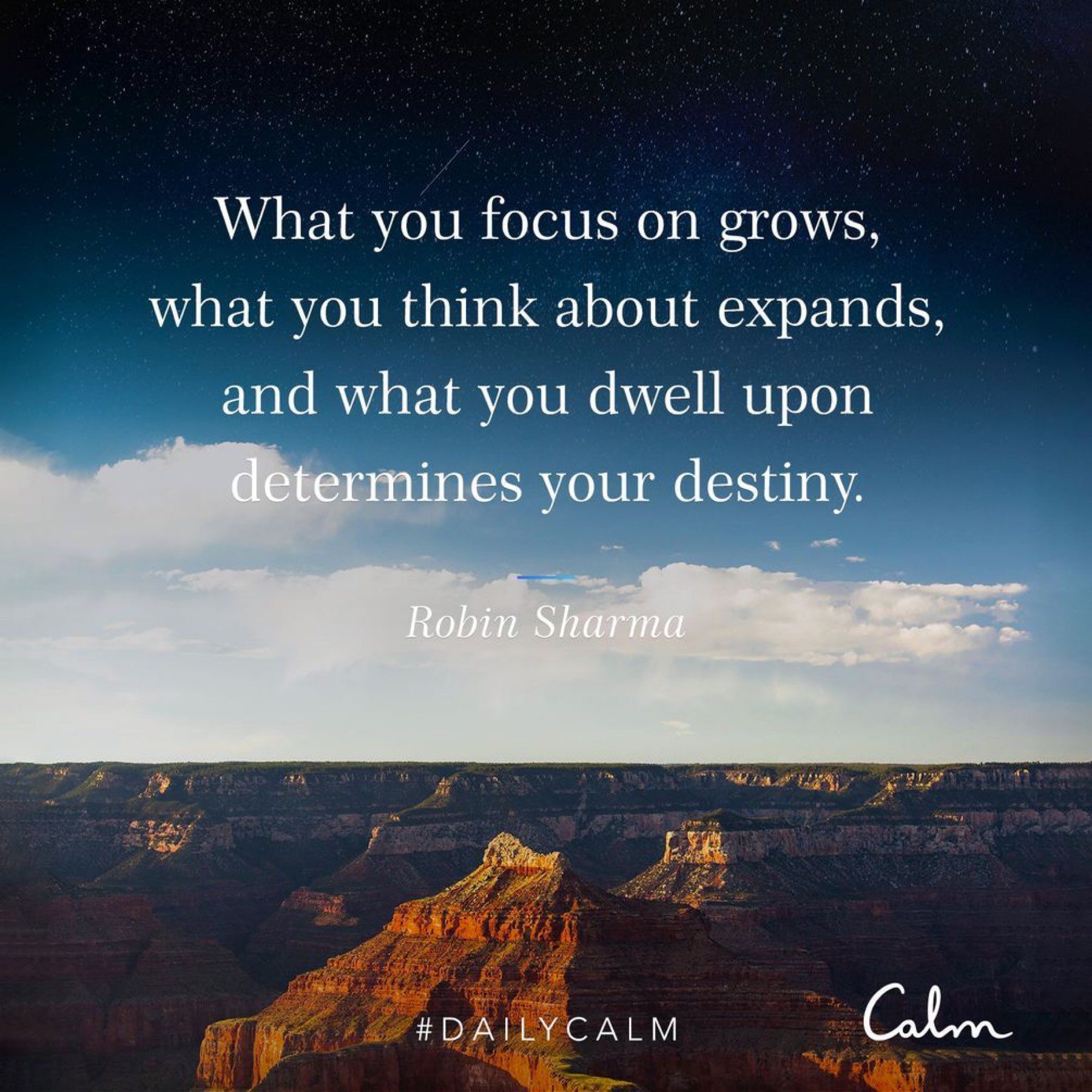
💮 Coming out
tl;dr Hi, I’m Ben, and I have OCD. 👋
I am not gay. I am happily married to the woman of my dreams, and we have six wonderful children. My coming out is of an entirely different nature. Hopefully no one who is gay is offended at my co-opting the phrase “coming out”—it felt the most appropriate for the emotional struggle I have found in coming to terms with this huge part of my life and my identity.
There is no one label that defines who I am. But I have realized that having OCD has defined a great deal of my life to this point. It feels like a big step to be able to finally acknowledge that, both to myself and to others. So, today I am announcing that I have obsessive-compulsive disorder, along with generalized anxiety disorder and panic disorder.
Having vs. being
When I first starting writing this post, I wrote that I am OCD, but as I kept writing, it felt better to change it to say I have OCD. That minor change in language represents a major change in my mindset, and one that I hope to preserve, or at least to come back to again and again. This issue (or any other!) does not define me, but it is something that I carry and has shaped my experience.
Some background
I grew up a member of The Church of Jesus Christ of Latter-day Saints, and that continues to be an integral part of my life. Like in many Christian faiths, we were taught about faith and works. “Faith without works is dead” (James 2:26). Unfortunately, our culture, both in my church and in my family, was one of absolutes as well as black and white thinking. Every choice was righteous or evil. Every decision brought me closer to Satan or the Savior. There was no room for gray.
In this world, I thrived. I embraced black and white and one of my favorite scriptures was Revelation 3:16, “So then because thou art lukewarm, and neither cold nor hot, I will spue thee out of my mouth.” By no means was I perfect. But I sure tried. And when I failed, I made sure that I knew it loud and clear. In many ways, I was not alone in ensuring this. When I brought a report card home with six A’s, and an A-, I knew the reception would be, “What’s wrong? Why did you get an A-?” That became the voice inside my head.
Unwittingly, I pushed myself harder and harder, and further and further into a dark place. Part of the problem was that not only was my behavior not seen and understood as unhealthy, but it was rewarded and reinforced. Years passed and I met an amazing woman, and somehow she agreed to marry me, and we started a family. I worked hard to be a good husband and father. More accurately put, I berated myself for every shortcoming when I was not a perfect husband or father.
My journey
Last April, I had the good fortune to attend the Peers Conference in Austin, Texas. On the first day, we participated in breakouts that were like group therapy sessions. I shared some of my thoughts and feelings about work, and the dissatisfaction I was feeling, and the facilitator suggested that my concerns had nothing to do with work. He suggested that I find a counselor, particularly one who shared my faith and understood that part of my life. I was taken aback—counseling was not something I had ever considered before.
Over the summer, I began to see a chiropractor for the first time. I then experienced my first panic attack, and was referred to a fantastic therapist by my chiropractor. After the first visit, I told my wife, “It’s like speaking with a skilled friend.” My therapist saw through me and could identify so many of my smokescreens and crutches. As we ended the first session, she said (I’m paraphrasing a bit because I don’t remember her exact words), “You do not have perfectionistic tendencies as you suggested. You are a violent perfectionist and it is damaging you and your relationships.”
Part of the challenge for me was in accepting that my OCD is different than what I expected. I don’t have to turn the lights off twenty times. I don’t have to wash my hands endlessly (unless, of course, I get something on them!). One of my favorite TV shows is Monk. I identified with so much of what he feels and says. But at the same time, I found my own situation to be so different than his that I felt sure that this is not what I have.
As an aside, my wife and I were in the middle of rewatching all eight seasons of Monk when I experienced my first panic attack and started seeking help, and we decided that I had better take a break until I feel less suggestible. 😂
As I met with a psychiatrist and started medication, I experienced the onset of panic disorder. We experimented with medication, and I am on my fourth try and finally starting to feel some relief. As my therapist has helped me see, part of the challenge with OCD is that it works…until it doesn’t. I have developed compulsions and coping mechanisms that are so ingrained that I don’t even recognize them as such yet. But the journey has begun.
My current state
I would like to think that I hit rock bottom a couple weeks ago. After a day with three panic attacks, and some unsafe thoughts, I admitted myself to a crisis center for a night to make sure that I was stable and safe. Since that point, I have continued to improve. I am surrounded by loving and caring people who have given me unconditional support.
Some days, all that support makes it worse. I told a support group this week that each new relationship feels like another chance to let someone down. But I have come to accept that.
The truth is that I will let people down. I am not enough. The beauty is that I don’t have to be. The Gospel of Jesus Christ is so much more important and impactful than the culture in which I grew up. I don’t have to be enough because I have a Savior who is enough. That teaching got lost for me somewhere along the way, and I still struggle to hold on to it. But I have hope.
Looking forward
Some of my fantastic support comes from people at work. My boss and HR leader suggested that I consider taking some time off to heal, which I have done. So I am on extended leave from work. I have stepped back from my volunteer church assignment. I am getting more counseling and starting to take steps toward healing.
I am a long way from better. But I finally realize and accept that. It took me a while to get to this point, but I am now fine telling anyone about my situation. It is no longer a badge of shame. And it is certainly not a failure.
I am Ben, and I have OCD.
And that’s ok.
P.S. I have tagged this post with an emoji: 💮. I plan to post occasionally about my state or my progress and will use this emoji to identify mental-health related posts. This should make it easy to find the ones that you might want to read (or skip!).
I really liked this note on Emojipedia, which is why I chose it:
The Apple artwork contains Japanese text on the inside that translates to mean “Well Done” or “You did very well”.
It might not be the perfect emoji for this purpose, but that is beautiful in its own way. I need to embrace a little imperfection in my life.
🌀 Replacing sorry
The phrase “I’m sorry” has so many potential meanings and applications that it is nearly incomprehensible.
My wife and I have worked on removing it from our conversation with each other in favor of more explicit phrases. There are two main substitutes we use instead:
- “I send you compassion”
- “I apologize”
One of the main reasons that drove us to make this change came from the compassionate style of “sorry” usage. Often, exchanges went something like this:
I’m sorry that happened.
It’s ok. It wasn’t your fault.
I wasn’t actually taking the blame for it.
Oh. Right.
Usually that second speaker was me. 😆
After this had happened enough times, I asked if we could try to make a change so I could more easily understand with clarity.
I have found that a side effect of using this increased precision of language is a greater feeling of intentionality. It can be all too easy when seeing someone suffering to blithely toss an “I’m sorry” their way. Consciously stopping to say the words has helped me feel more actual compassion. I also feel a heightened sense of accountability when I wronged someone and then realize it and deliberately apologize.
If this has resonated with you, I invite you to join me in a practice of greater compassion and accountability through increased precision of language. I hope you find as beneficial as I have.
I have found that truly thinking for myself is harder to do than I ever imagined. Still working on it in many ways. Daily Calm 🧘🏻♂️
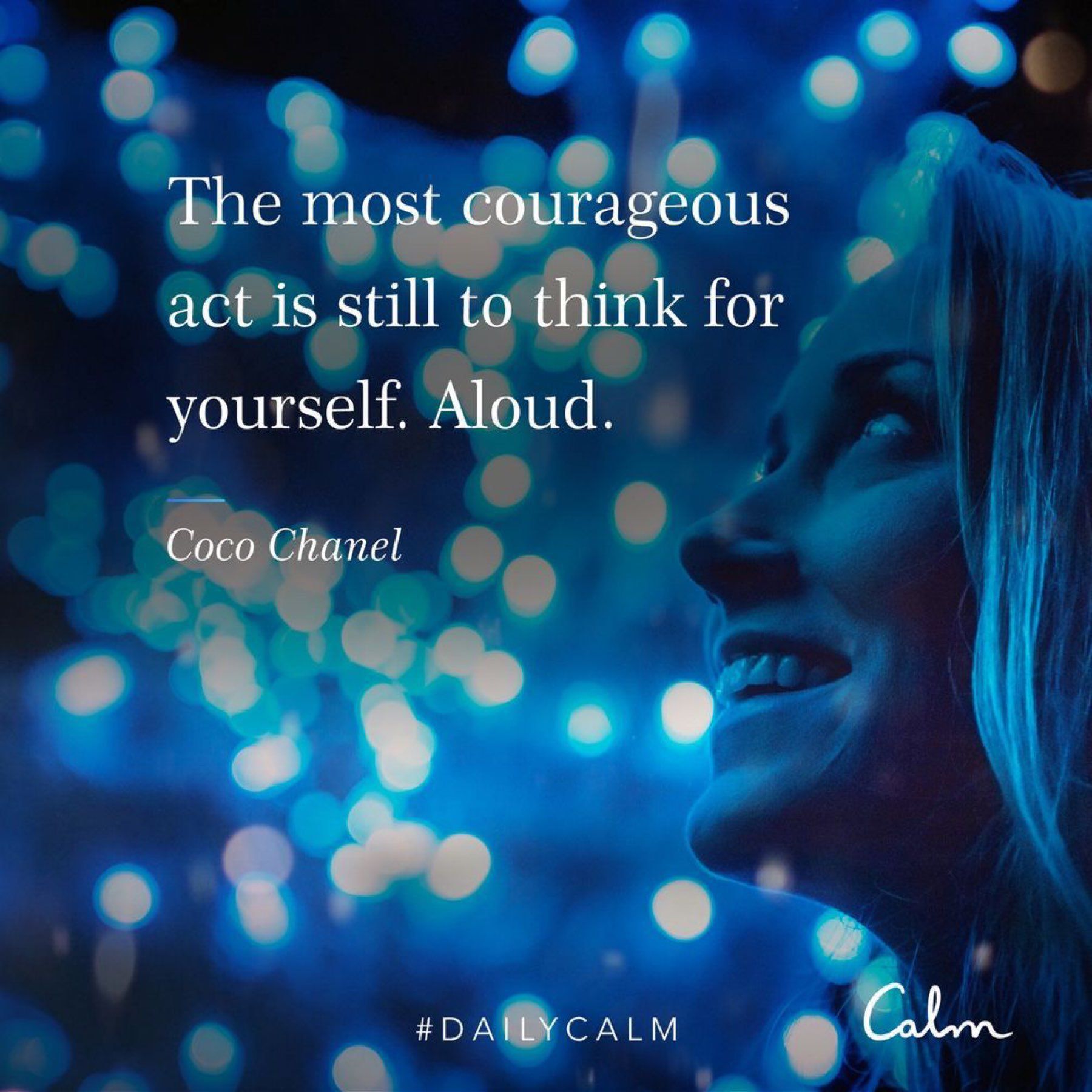
📖 Read: Ultralight
By Leo Babauta
This is where I need to focus right now—getting to know myself better. Daily Calm 🧘🏻♂️
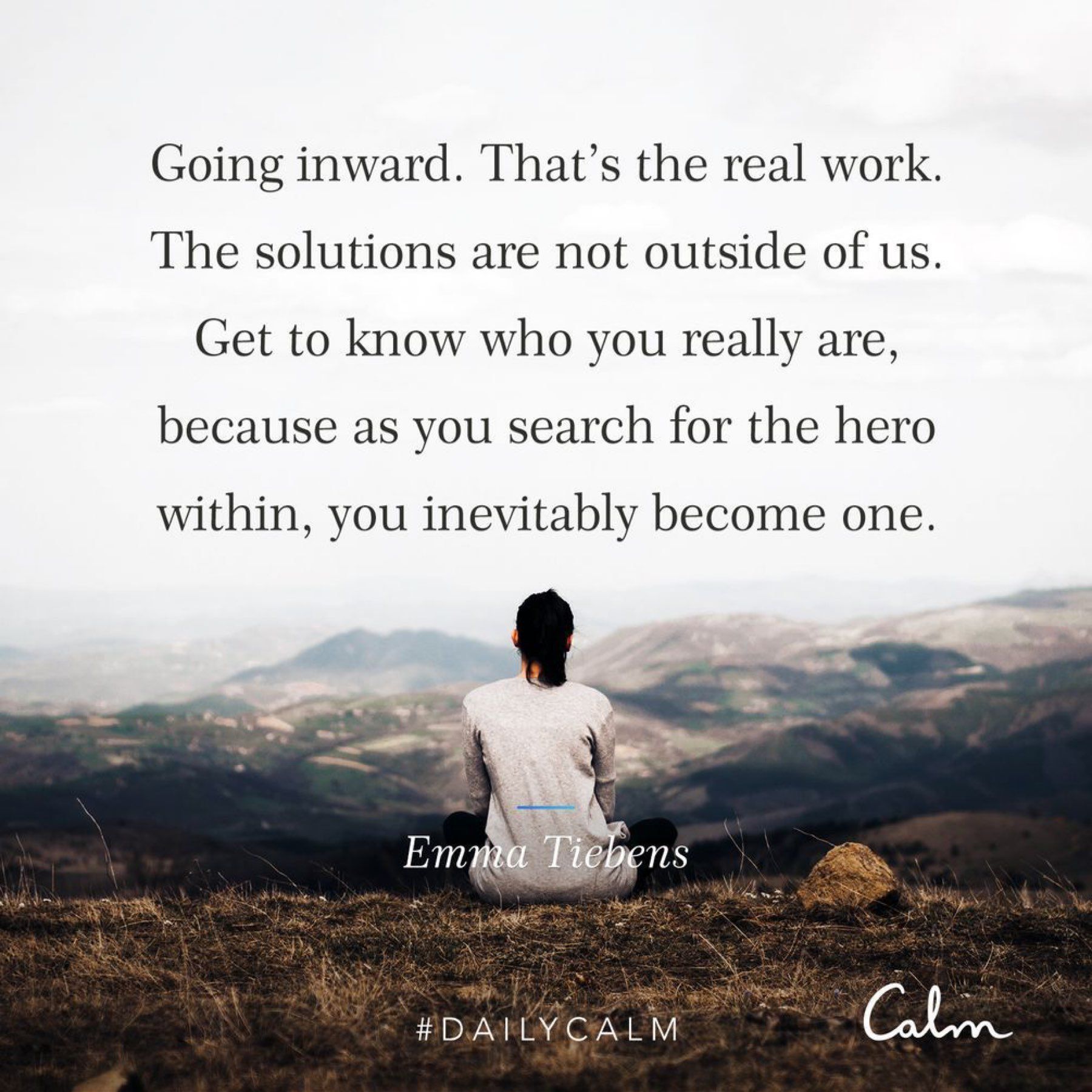
🎥 Bohemian Rhapsody
Solo date
🎙 Finished: Believed
This was hard to listen to, and harder to think about, but as a father of three girls, it felt important to me to confront what’s possible in this world. I pray that I will always err on the side of believing those whose lives have been shattered.
Liberating reminder from today’s Daily Calm 🧘🏻♂️
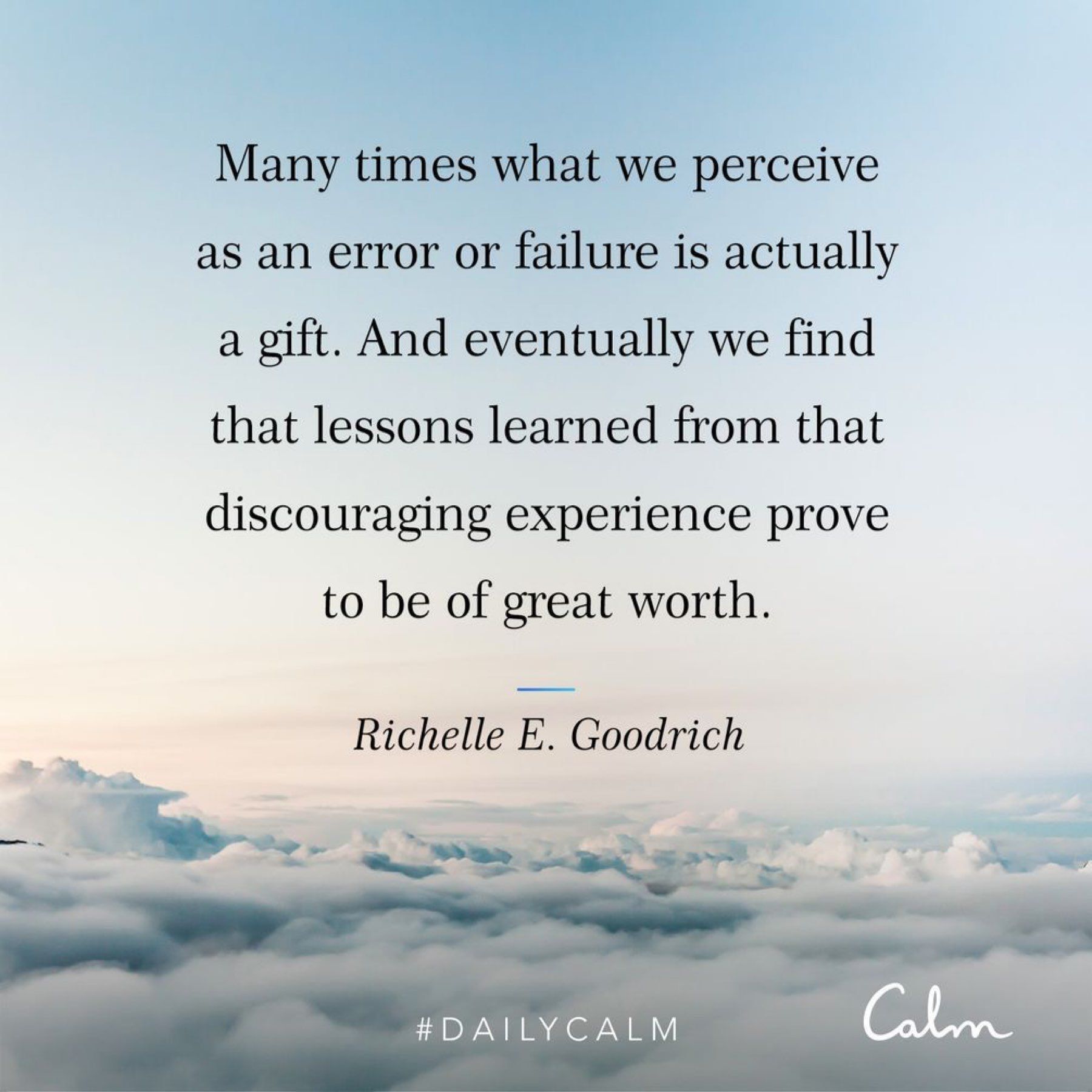
🌀 The plague of busyness
A multitude of plagues beset us today, and one of the most pernicious is busyness. Somehow, we have allowed this to become a martyr’s badge of glory. We revel in how little time we have to ourselves as if this validates our importance, our inclusion into the elite. The few. The proud. The busy.
Symptoms
Three ramifications of this infatuation have forced their way into my consciousness lately:
- Sacrificing the important on the altar of the urgent
- Indulging in an addiction to meetings
- Denying ourselves and others space for self-care
Sacrificial altars
When busyness infects us, we stop planning and stop thinking. We start reacting, and are constantly overwhelmed. This leads us to prioritizing based on pain, which will always lead us to pay more attention to immediate demands. Unconsciously, every time we do this, we are plucking our important work up and dumping it unceremoniously as a sacrifice to the urgent. The gods of busyness are never appeased, and we end up living our life fighting the fires we have lit on these insatiable altars.
Addiction indulgence
Meetings are the ultimate expression of busyness. Nothing says busy like a calendar full of meetings. We feel more and more important as we dash to and fro without pausing to think or prepare or work—we just congregate with other addicts and talk about working instead. Most meetings could have been a simple asynchronous digital conversation, but instead we crowd our calendar with evidence of our importance. Like so many other addictions, we reason to ourselves that all of these meetings are necessary—this is real work. We are having crucial discussions. And the cycle perpetuates.
Self-care denial
Tragically, one of the first casualties of this plague is the opportunity for self-care. Even contemplating considering time out for renewal feels heretical. We fill our time with “shoulds” and “have-tos” in order to maximize efficiency and continuously realign our paradigms with the highest priorities, and other empty nonsense phrases. Just as with our projects, we unconsciously budget for rework and recovery due to an urgent lack of time to slow down and take a careful approach now. Absent self-care, we become the doppelgänger of our battered calendar—an exhausted husk reminiscent of potential greatness.
Remedy
The rather obvious cure for the plague of busyness is to slow down. We must acclimatize ourselves to inefficiency, and embrace occasional boredom. There must be white space in our lives and in our minds. We must consciously step out of the urgent to consider the important.
One practical approach to facilitate this is to simply schedule time to think. Feign conformance by using the favorite weapon of the busy elite—the calendar—to thwart their designs. When regularly practiced, this thinking time will result in drastic changes to the way in which you spend your days.
There is little chance of exterminating a plague that so many are eager to experience. You cannot remain completely unsoiled as you trudge through the ubiquitous infestation of the workplace and world. But you can escape the clutches of comprehensive infection. Practice constant vigilance while granting yourself permission to take life at a slower pace. Success, while never certain, is imminently attainable.
Round 3 of drawing a phone background for my mindfulness practice (see previous). This time, I decided to focus on the things that I want to remember regularly—my family and my goals. 🧘🏻♂️
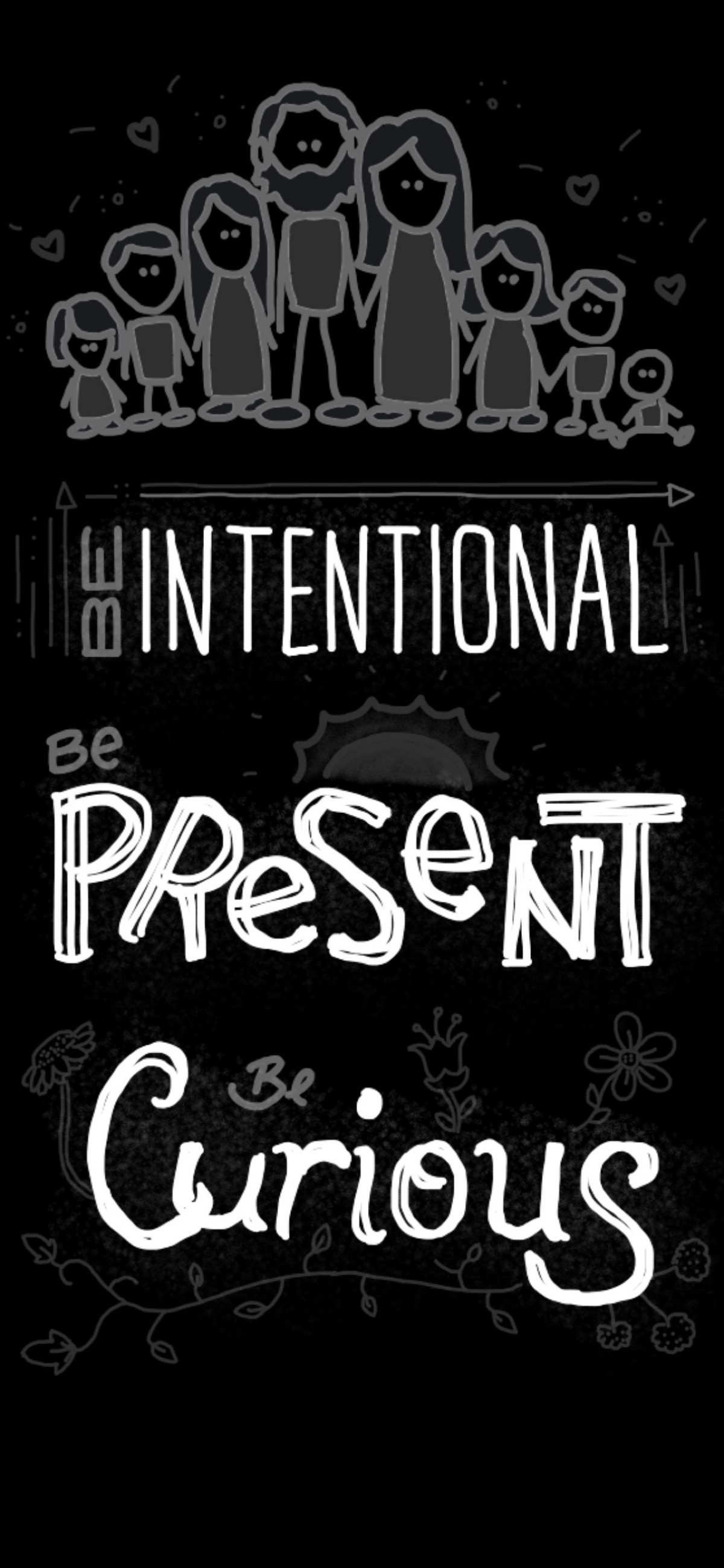
Inspirational start to the day from my Daily Calm 🧘🏻♂️
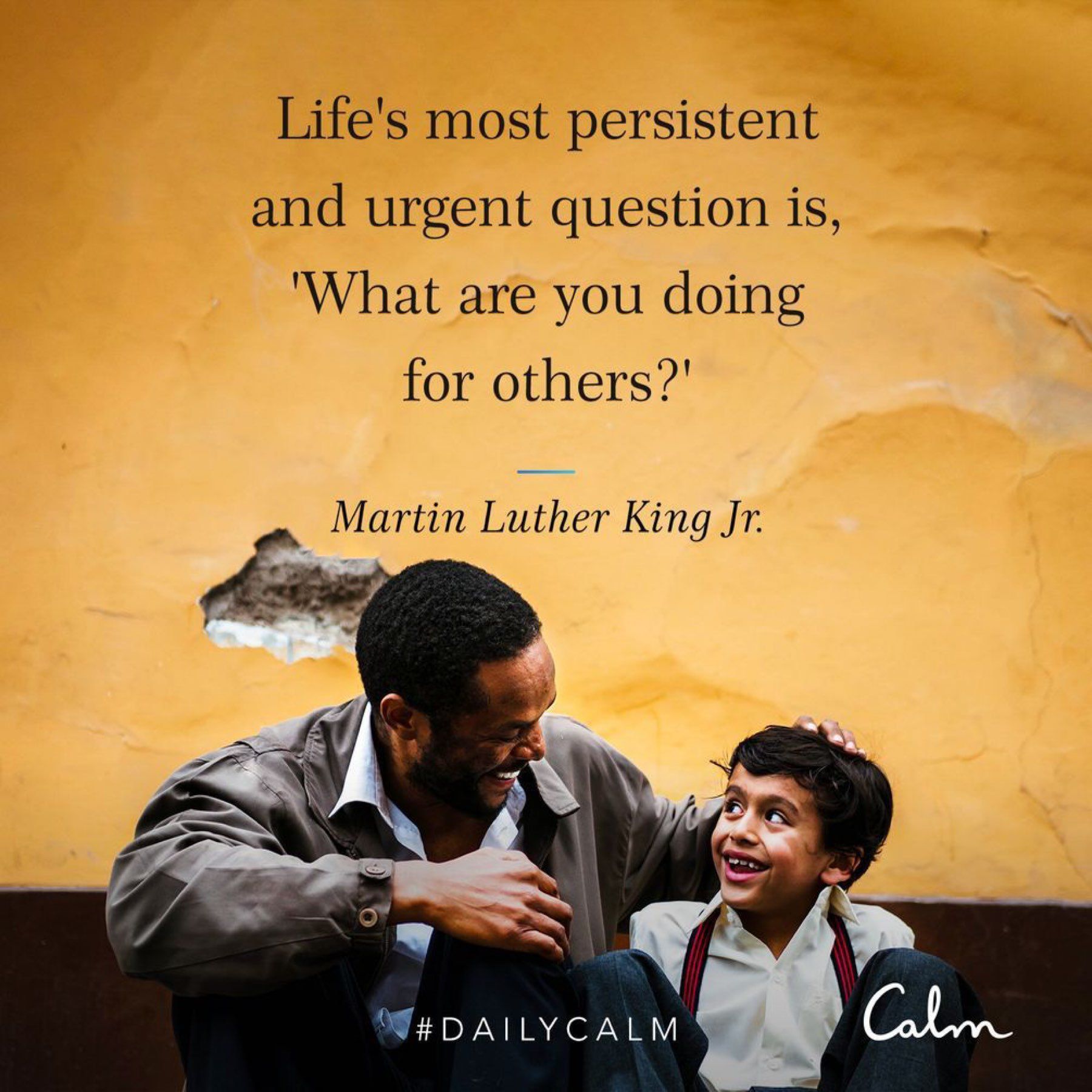
Gorgeous sunset this evening!

🔗 Growing up
I loved this article this morning: Sunday Firesides: Dependence to Independence - The Art of Manliness
Unfortunately, many people don’t outgrow this phase of infantile dependence. They still primarily try to get what they want by manipulating others, by having a “tantrum,” by metaphorically quivering their lip or pooping in their pants and then waiting for someone to notice. They wait for a solution to their problems to arrive from the outside.
Maturing means growing in your capability to meet your own needs, as you become progressively more skilled, competent, and emotionally intelligent. And it means becoming less needy in general. As Ralph Waldo Emerson put it, “Can anything be so elegant as to have few wants and to serve them oneself?”
I hope to improve this in my own life, and also to equip my children with these skills as they grow up.
Just what I needed to hear today in my Daily Calm 🧘🏻♂️
I think I’ll call my brother now. 📲 👋
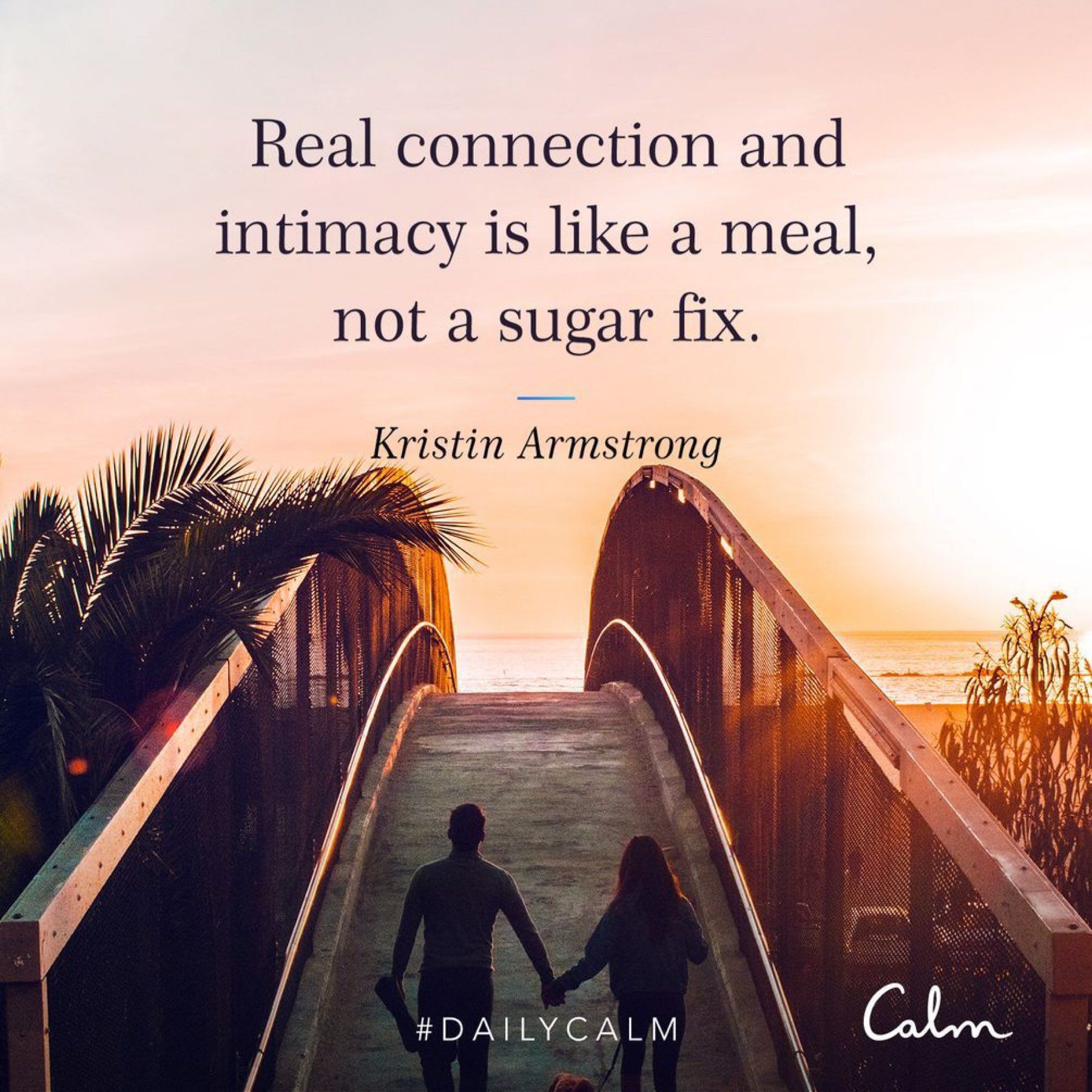
My boys are beyond excited (and my 4yo daughter is terrified!) about the real life blood moon. 🌕🌎🔴🌑 I guess we’ve been playing Zelda: The Breath of the Wild a bit much. 🎮 😜
Great reminder from today’s Daily Calm 🧘🏻♂️
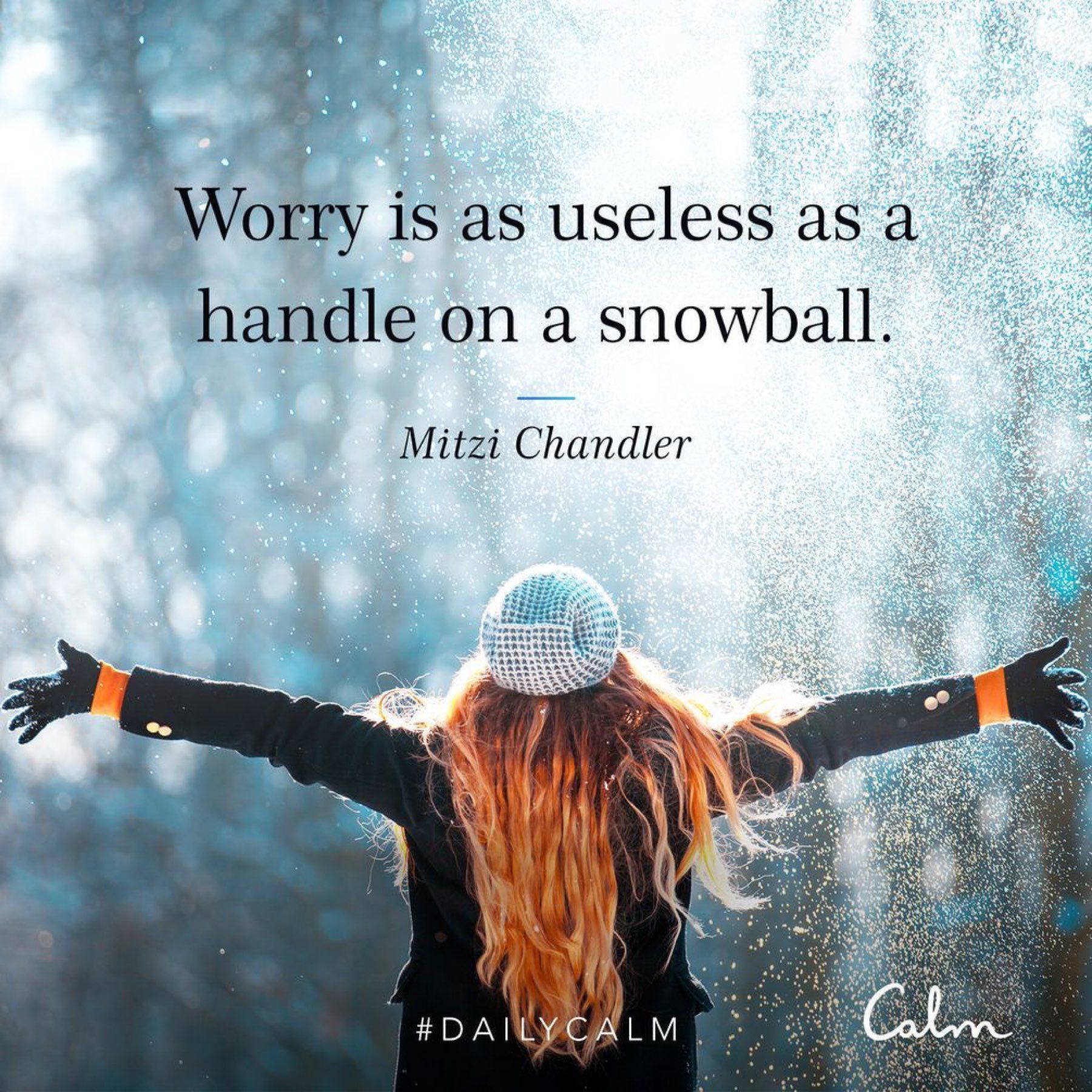
🌀 Living with incompetence
Note: I started this post last week, and then ignored the news for a few days. I thought that I would need to table this post as being no longer relevant. Sadly, I found out today that it is even more relevant than before.
I heard in the news on the radio that the government shutdown has become the longest ever. It seems that everyone involved is happy to have it drag on as long as they are able to blame someone else for it. This behavior makes me sick and a bit worried about the future.
It hit me that this kind of incompetence has become almost ubiquitous. We see people in positions of authority who appear to be comfortable with sitting back and looking for others to blame for their failures instead of working to create solutions.
One of the problems is that we have come to equate experience, or time in position, with competence. We often promote the wrong people—someone who does well as an individual contributor gets promoted and immediately starts on the management track. These people then stay in management and begin to be considered as competent just because they have management experience.
It seems to me that a major cause, if not the root cause, of this failure is that we skew evaluations in favor of measures that are easy to quantify. Competence is hard to measure, but years of experience is easy, so we settle for that. In order to fix the issue of living with incompetence, we need to get better at evaluating intangible behaviors.
As cathartic as venting can be, I want to make sure that this is not just a gripe post for me. My biggest takeaway from my thinking about this is to focus on improving my evaluation skills. As a father, and as a manager, I want to find ways to mentor and help others grow in meaningful ways. I want to make sure that I never contribute to this culture of living with incompetence, but instead work to be part of the solution.
Really enjoyed the latest episode of Release Notes 🎙 @joec In my new app Carrier, I took a different approach to the free trial. You can see it in the third app screenshot in the store. Basically, I show how much they can use the app without upgrading. May be worth trying…
I took my six-year-old with me to the gas station to get drinks for our sick kids, and he walked up and down the candy aisle. “I wish we had gone to a boring store like IKEA, and not one that had stuff that is so tempting to me and cheap. (Whispers) Write that down.”
I just bought a new bag for my iPad, and started by going to the Release Notes show notes to find the company recommended by @joec. Can’t wait for it to arrive! There is a good chance I will be spending way too much money at this site. 😬 💼
When you’re trying to post every day, some days all you can post is that you want to post…
📖 🎧 Dad Is Fat
By Jim Gaffigan
As I was changing the baby, Micah (age 6) came over and asked, “What does his shirt say?”
Me: “I’m the boss. Until Mom comes home.”
Micah: “Hahaha. I wish they had a men’s size of that.”
Me: “Oh yeah? For whom?”
Micah: “For you! Cuz you’re the boss. Until Mom comes home.”